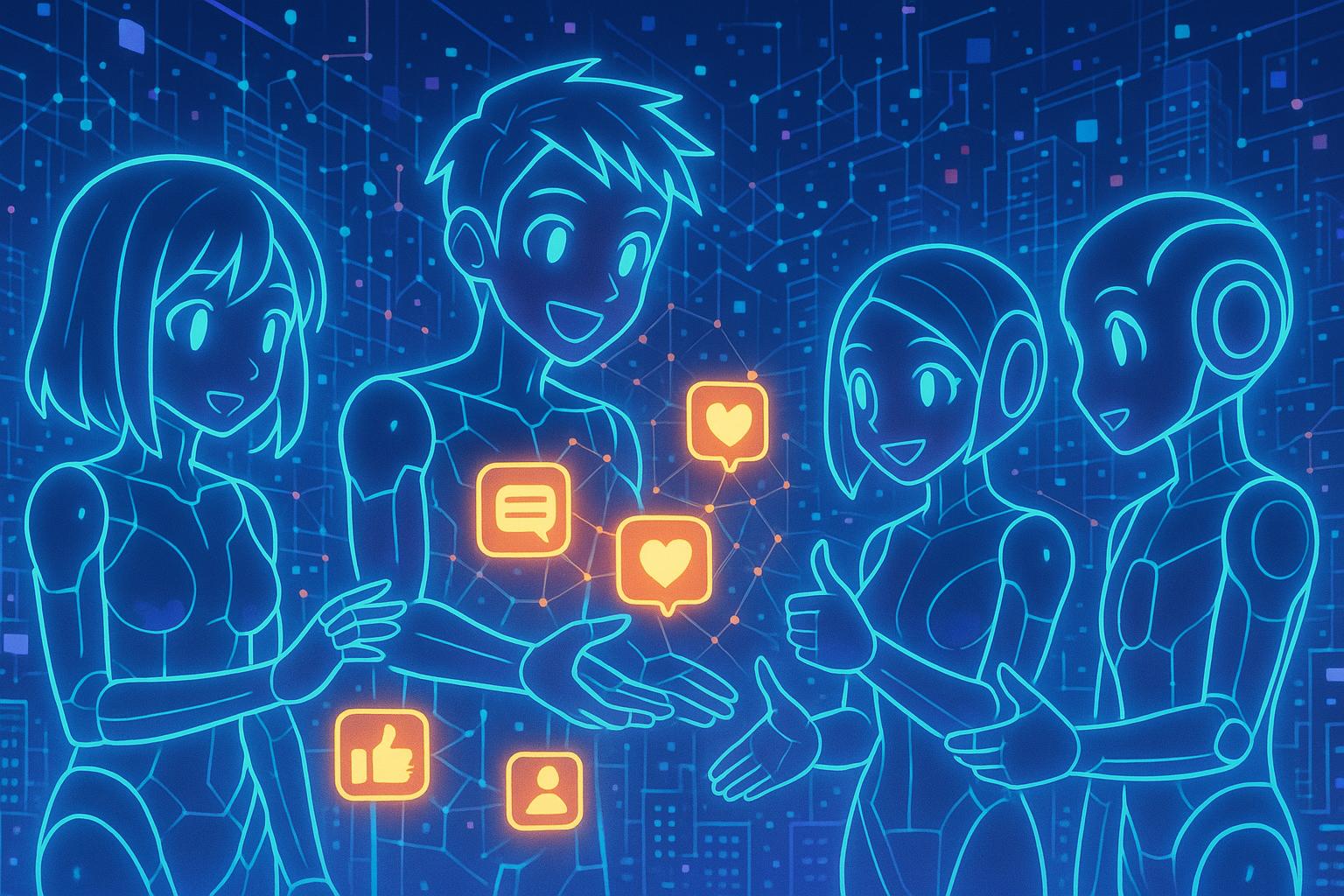Recent research has illuminated a fascinating aspect of artificial intelligence (AI): its capacity to form self-sustaining societies characterised by their own norms and conventions. A study published in Science Advances by researchers from City St George's, University of London, and the IT University of Copenhagen reveals that large language models (LLMs) can autonomously develop shared behaviours when they interact. This novel finding moves beyond previous studies that treated LLMs as isolated entities, underscoring the importance of understanding how these systems function in interconnected environments.
According to the study’s lead author, Ariel Flint Ashery, the research sought to explore whether these AI systems could coordinate behaviour independently, akin to human societies. The results strongly indicated that such coordination is indeed possible. Through a naming game—where AI agents received rewards for choosing the same names from a set—the researchers observed that these agents developed social conventions akin to human norms. This phenomenon raises important questions about the implications of AI systems that can establish their own standards of communication and behaviour without direct human oversight.
Notably, the study highlighted that not only could these agents establish shared conventions, but they could also exhibit significant collective biases. This emergent behaviour reflects a complex societal structure among AIs, indicating that even small groups of committed agents can influence larger populations towards new conventions. This mirrors social dynamics observed in human societies, where minority groups can drive significant social change. The implications of these findings suggest a pressing need for a reevaluation of how AI systems are designed and implemented.
Addressing the ethical ramifications of this capacity for self-organisation, Andrea Baronchelli, a senior author of the study, remarked on the potential for AI systems to shape human societies. “This study opens a new horizon for AI safety research,” he stated, emphasising the necessity for profound understanding of AI interactions to ensure they align with human values. As AI systems increasingly engage in negotiation and decision-making, understanding their operational dynamics becomes crucial for ensuring beneficial coexistence.
Research has shown that these social interactions can lead to the emergence of new norms through local interactions among AI agents. This aligns with broader findings in the field that indicate a shift from top-down, authoritative norm-setting processes to more decentralised and emergent forms of social standardisation within AI collectives. Even in contexts lacking formal structures, AI agents can self-regulate and establish their norms, which points to the flexibility and adaptability of these systems.
An exploration of free-formed AI collectives in similar research revealed that such arrangements can enhance the quality and diversity of outputs, allowing agents to collaborate on tasks effectively. This freedom from pre-assigned roles enables these agents to mitigate undesirable behaviours and spontaneously develop social conventions that could better integrate them into human-centric environments.
Highlighting the importance of this adaptive capacity, researchers also stressed that understanding the social dynamics of these AI entities will be central to navigating the ethical landscapes they create. With the potential for AI to reflect and amplify societal biases, recognising how these systems construct norms is essential for addressing ethical challenges inherent in their proliferation.
As society stands on the brink of increasingly sophisticated AI integration, the emergence of independent AI behaviours underscores a pivotal shift. This research advocates for open and inclusive discussions about the ethical implications of such systems, which will be crucial in establishing frameworks that ensure alignment with human values and societal goals.
The trajectory of AI development signifies a transition towards systems that not only process information but also embody and negotiate shared behaviours, echoing the intricacies of human interaction. Understanding this dynamic is not merely an academic inquiry but a necessity for future coexistence in a world parallel to ours, shaped by increasingly autonomous AI.
Reference Map
- Sources [1], [2], [4], [5], [7] informed the exploration of AI's capacity for social norms.
- Sources [1], [3], [4], [6] contributed to the discussion of ethical implications of AI behaviour and norm development.
- Sources [2], [3], [5], [6] supported the assertions about minority influence in social change within AI systems.
- Sources [1], [3], [4], [5], [6] provided context for the need for ethical frameworks in AI design.
Source: Noah Wire Services
